
James.Ramey
gamer level 2
540 xp
540 xp
followers
4
4
Use my invite URL to register (this will give me kudos)
https://boardgaming.com/register/?invited_by=jramey
profile badges
...
...
...
...
recent achievements

Follower
Follow another gamer by clicking "Follow" after reading a review or viewing their profile.
Follow another gamer by clicking "Follow" after reading a review or viewing their profile.

Noble
Gain 2 followers
Gain 2 followers

Amateur Reviewer
Review 3 games and receive a total of 40 positive review ratings.
Review 3 games and receive a total of 40 positive review ratings.

Rated 25 Games
Rate 25 games you have played.
Rate 25 games you have played.
Player Stats
Critic (lvl 1)
290 xp
290 xp
Explorer (lvl 0)
50 xp
50 xp
Professor (lvl 0)
10 xp
10 xp
Reporter (lvl 0)
70 xp
70 xp
About Me
I'm a huge fan of horror and science-fiction themed games. Beyond that, I love strategy games. I'm willing to try just about anything, and love to bring the hobby to new people!
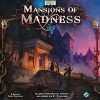
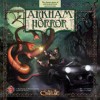
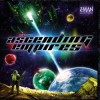

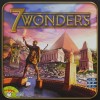


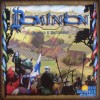
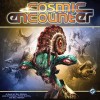




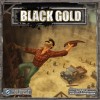
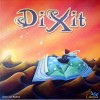


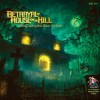








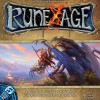




Mr. Jack
Mr. Jack is a two player deduction game in which one player is Jack the Ripper disguised as one of the 8 characters on the board, and the other player must try to deduce which of the 8 characters is Jack. The game clocks in at 20-45 minutes.
On each turn, the players draw 4 character cards, and each control two of them. All of the 8 characters have special abilities ranging from drawing an Alibi card (which proves a characters innocence), to moving additional characters around. At the end of the turn, if Mr. Jack is near a light (or otherwise illuminated), all of the characters that are not illuminated are flipped over to their “innocent” side, and if Mr. Jack is in the dark, all characters illuminated are innocent. This continues until either Jack is caught, escapes, or lasts 8 turns. Through the game, 4 of the 6 lamp posts will be turned off, making it easier for Jack to evade.
This game plays so quick that you can easily fit two games in; one where you play Mr. Jack, and one where your co-player plays Jack. The two sides play different, and are fresh enough to make you want to continue playing.
Mr. Jack is a light game, so don’t come into this expecting a deeply strategic brain burner. Half the fun of the game is taking a risk and accusing someone, even when you don’t have it entirely pinned down.
If you’re a fan of light games made for two players, you will probably enjoy this. If you don’t like having to deduce information out of limited clues, you may want to give this a pass.